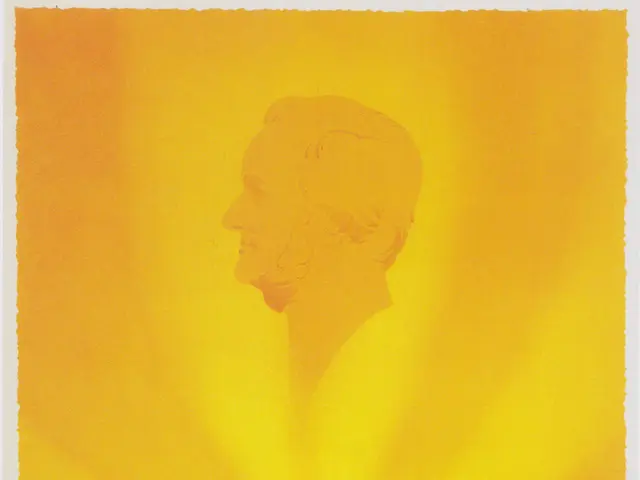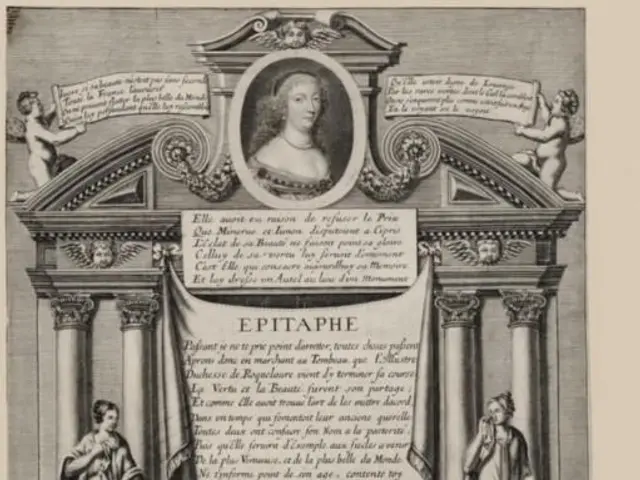Crafting the Ineffable: The Influence of Fictional Worlds on Human Thought Processes
Dive into the remarkable realm of imagined realities – far from mere storytelling, it's an artistic exploration where creativity runs rampant, and entire universes spring to life. These dreamworlds serve as doors to limitless creativity, deep introspection, and profound impact, offering both creators and audiences a haven to escape, reflect, and challenge perceptions.
A masterfully crafted fictional reality transcends simple storytelling – it becomes an experience. It equips creators with the power to weave worlds that captivate, challenge, and inspire, making every tale more intriguing, enlightening, and emotionally resonant. Through vivid settings, compelling characters, and multidimensional plots, fiction transforms abstract concepts into tangible experiences, inviting readers to experiment with possibilities beyond reality.
Imagined realities are crucial since they push the boundaries of thought, emotion, and experience beyond what real life often allows. They offer a chance to explore alternative perspectives, cultures, and ideas, fostering empathy, opening minds, and creating a richer understanding of the world. Here are a few reasons why it matters:
- Discovering the Human Condition - Fictional universes provide a platform to experience different lives, cultures, and struggles, fostering empathy and a deeper comprehension of humanity.
- Exploring Ideas & Concepts - By presenting alternate realities, fiction can challenge established notions, explore societal structures, and introduce new ways of thinking.
- Seeking Emotional Relief - Audiences can connect with characters, stories, and experiences, using fiction as a means to cope, process emotions, and discover hope.
- Sparking Innovation - Innovations in science, technology, and culture have often been inspired by imagined realities, demonstrating the power of fiction to shape the real world.
- Preserving & Reinventing Narratives - Through myths, legends, and modern tales, fictional realities preserve cultural heritage while continuously evolving.
- Creating Meaning & Connections - Whether an epic journey, introspective journey, or surreal odyssey, fictional universes resonate with audiences in personal ways, leaving a lasting impact.
Fictional worlds don't always require a completely fictitious universe – they can simply be a story that subtly distorts or bends reality. Many classic works of fiction take real events, places, or concepts and slightly skew them to create a compelling narrative.
It's not just about crafting engaging stories – it's about expanding perspectives, stimulating curiosity, and making sense of the world through unexpected lenses.
In screenwriting, J.R.R. Tolkien's Middle-earth (The Lord of the Rings, The Hobbit) stands as a richly detailed fantasy realm. J.K. Rowling's Wizarding World (Harry Potter series) brings magic to life in a vast, immersive universe. George Lucas's Star Wars saga spans multiple films, series, and novels, crafting an expansive sci-fi reality. The Marvel Cinematic Universe (MCU), based on Marvel Comics, has established an interconnected superhero world dominating modern cinema. Meanwhile, Blade Runner, The Matrix, and Mad Max explore dystopian futures, cyberpunk aesthetics, and post-apocalyptic landscapes.
In novels, George R.R. Martin created the intricate world of politics, war, and magic known as Westeros (A Song of Ice and Fire / Game of Thrones). C.S. Lewis explored an allegorical fantasy realm in The Chronicles of Narnia. Terry Pratchett crafted the satirical and humorous universe of Discworld. Isaac Asimov's Foundation series presents an influential sci-fi narrative about galactic civilizations. Meanwhile, Stephen King's The Dark Tower series blends fantasy, horror, and western themes.
Films like Forrest Gump (1994) weave a fictional protagonist into historical events, creating an authentic yet imaginative story. Similarly, The Man in the High Castle explores an alternate history where the Axis powers won World War II, reshaping reality while keeping a historical feel. Titanic (1997) merges real historical events with fictional storytelling, adding emotional depth while preserving key historical details. Literary works such as The Great Gatsby present a fictionalized version of real social dynamics, capturing the essence of the Roaring Twenties without inventing a whole new setting. Biographical dramas like Catch Me If You Can (2002) and The Social Network (2010) take real-life events and embellish them with dramatic storytelling, blending truth and fiction. Meanwhile, Slumdog Millionaire (2008) immerses viewers in real-world India while telling a fictionalized story centered on fate and memory. Magical realism, as seen in One Hundred Years of Solitude, combines historical events with surreal elements, creating a world that is both familiar and extraordinary.
Share this:
Related
Rewriting the Past: How Fiction Brings History to LifeIn "Tips for Writers"
The Transformative Dialogue Between Story and ReadersIn "Exploring Storytelling"
The Write InsightsIn "Tips for Writers"
Here's why imagined realities matter:
- Unleashing Creativity: Combining factual elements with imagination encourages readers to engage actively with narratives, fostering deeper understanding, empathy, and creative imaginations.
- Fostering Empathy: Engaging with fictional narratives activates empathy, deepening our understanding of diverse viewpoints and cultures, making us more curious and open-minded.
- Shaping Memories and Identity: Fictional narratives can influence personal memories, identities, and perspectives by providing narrative patterns that inspire how we interpret our own experiences.
- Providing Sensory Experiences: Media like movies and video games offer vivid sensory details, providing immersive experiences that can lead to an emotional connection and deep inner life.
- Creating Escape and Reflection: Imagined realms offer a way to briefly escape reality, while still inviting us to reflect on real-world issues through engaging and thought-provoking narratives.
- Reflecting Cultural Significance: Fictional realities often carry cultural and symbolic significance, reflecting and shaping societal values, beliefs, and complexities.
- Stimulating Intellectual Growth: Fictional realities, particularly those in the realm of science-fiction and fantasy, push the boundaries of human imagination, encouraging readers to contemplate abstract concepts and challenge their own perceptions.
- Sowing the Seeds of Innovation: Books inspired by these imagined worlds have sparked groundbreaking inventions, demonstrating that fiction can have a profound impact on real-world advancements and societal progress.
- Diversifying Entertainment Sectors: Movies, television shows, and even games based on books and other stories in the realms of movies-and-tv, sci-fi-and-fantasy, and pop-culture continue to captivate audiences worldwide, expanding the entertainment landscape and providing new avenues for storytelling.








